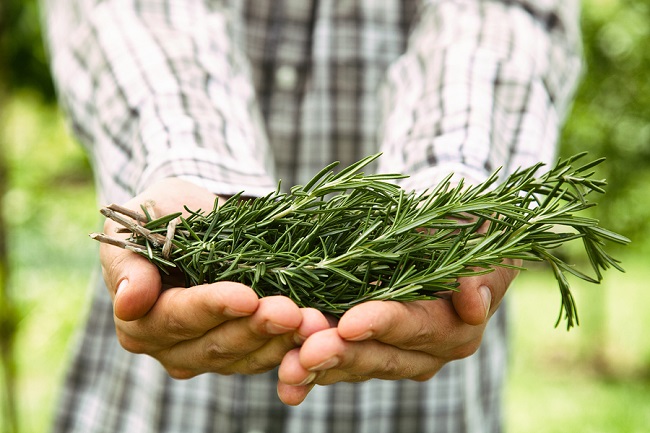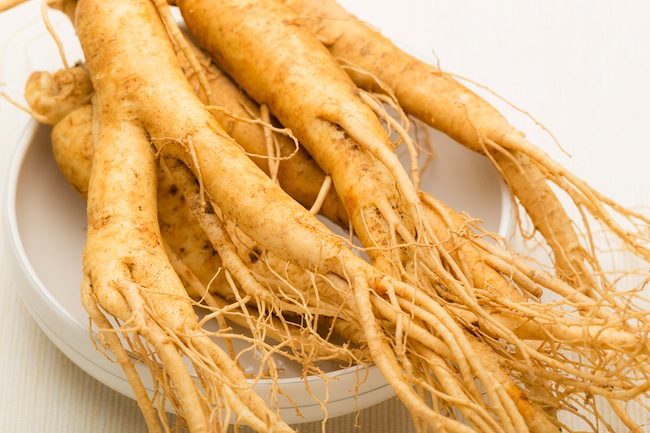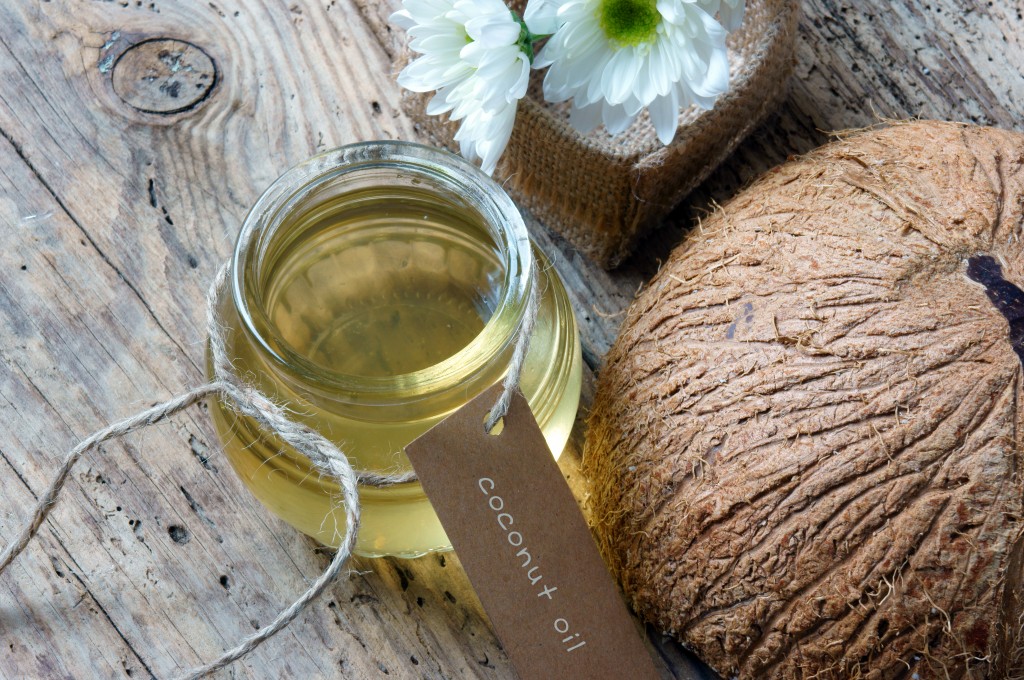- Make It Yourself Lavender Heart-Shaped Bath Bombs!
- 20 Things You Never Knew About “Down There”
- 12 Best Foods For Those Suffering From Arthritis Pain
- 12 Personal Hygiene Mistakes Almost Everyone Makes (Mom Never Told You About #4!)
- 15 Medicinal Plants And Herbs From The Cherokee People
- 12 Mind-Blowing Benefits Of Drinking Coconut Water During Pregnancy
- 12 Outstanding Winter Foods That Won’t Fatten You Up Like A Christmas Turkey
15 Natural Ways To Strengthen And Improve Your Memory Power

Photo credit: bigstock.com
For many years, people believed that your brain power peaked when you were in your 20’s and it was all downhill from there until, eventually, you became a senile person in your old age.
We know now that this is not true and it is not the natural way of things. You can keep your memory and cognitive skills sharp as ever for your entire life. Your body might slow down but your brain doesn’t have to!
Memory problems are a common complaint, especially for those over 50. There are numerous factors involved in your cognitive and memory skills including alcohol, smoking, certain medications, stress, depression, B vitamin deficiencies, sleep deprivation, and thyroid issues.
Serious problems, such as Alzheimer’s and other forms of dementia require extra help. If you believe that you or a loved one might be affected, please see your physician for a proper diagnosis.
However, for most of us, all we need is a little extra help to get our brains and memory to kick back into high gear.
Keep reading for 15 of the best ways you can improve your memory and cognitive skills without pills and without learning how to play chess.
1. Ginkgo Biloba
This herb has been used for centuries to help memory problems. Ginkgo biloba improves blood circulation to the brain, which naturally helps it to work better. This herb helps to improve cognitive thinking and memory in those with early stage dementia or Alzheimer’s. One study, published in the journal Human Psychopharmacology, found that this herb seems to be only truly effective for those suffering from dementia and does not work as well for healthy persons.
Continue to Page 2

Photo credit: bigstock.com
2. Do Mnemonics
Mnemonic devices are nothing more than little tools or tricks that help you remember information, words, or concepts. They can help you to organize information so that you can remember it more easily later on. Common mnemonics are:
- Chunking – Breaking up larger pieces of information into smaller bits or chunks. For example, you might remember a long set of numbers by breaking them up into a telephone format or you might remember directions in parts, like a movie.
- Acronyms – This involves using letters to spell out words such as THUGS might help you to remember to Thank Helen for Using Green’s Store or KAT for Kids at Three.
- Visualizations – You might keep a dog bowl in mind to remember to buy dog food or think about a bank so you remember to deposit a check.
- Rhymes or Songs- This is a great trick for remembering things such as a person’s name “Dan is a Raiders Fan” or when you need to remember a message, try putting into a song such as Twinkle Twinkle Little Star. Some kids are known to remember dates and other items for a test by putting important information in a song.
Continue to Page 3

Photo credit: bigstock.com
3. Almonds
Almonds are brain food on the go! These are used in Ayurvedic medicine for the improvement of the memory and generally improving brain function. Almonds are rich in omega-3 fatty acids and important antioxidants that improve the memory. On a side note, almonds are good for your eyes. You can try snacking on one ounce of almonds each day for at least a 30 day period and see if you are suddenly smarter.
4. Play Some Brain Games
You don’t have to go so far as to learn chess (unless you want to!) but if you don’t challenge your brain with new and interesting information, like everything else in the body, it withers away. That old saying of “use it or lose it” also applies to your memory and the brain. Try brain games for about 15 or 20 minutes each day. You can learn a new musical instrument, learn a new language, or try writing a novel. You can also go online and play brain games that are specially designed to help work the brain while having fun.
Continue to Page 4

Photo credit: bigstock.com
5. Rosemary
This is a popular herb for improving memory skills. Even just smelling this aromatic herb can help with memory problems. The University of Northumbira in England conducted a study in 2013 which found that just smelling this herb improved prospective memory, which is vital for everyday working memory.
6. Don’t Forget Your Z’s
Harvard University conducted a study which found that people who got regular sleep had improved memory. Sleep is known to improve your memories as well as improve your performance when faced with challenging skills. This study found that just one night of 6 hours of quality sleep impacted a person’s ability to think clearly the next day.
Continue to Page 5

Photo credit: bigstock.com
7. Black Seed
Black seeds, sometimes called kalonji (scientific name Nigella Sativa) are terrific when it comes to improving the memory because of their anti-inflammatory, antioxidant, and neuron protecting compounds. The Journal of Ethnopharmacology conducted studies which found that persons who consumed two-500 mg supplements containing pure black seed powder each day had significant improvement in memory, cognition, and attention span when compared to those who took the placebo. Try mixing half a teaspoon of ground black seed twice each day.
8. Forget about Multitasking
Most people have been brainwashed into thinking that multitasking (doing several things at one time) is the ultimate in productivity. Actually, this has been proven to be just the opposite. Multitasking actually slows you down, makes you more forgetful, and makes you more prone to commit mistakes as well. Scientific studies show that you need about 8 seconds of concentration to commit something to memory. This is why, when you are talking on the phone, carrying in the kids, and then you set down your car keys, you instantly forget where you put them. (The keys, not your kids!) Instead of trying to do three or five things at one time, try instead to focus on no more than two things at one time.
Continue to Page 6

Photo credit: bigstock.com
9. Indian Gooseberry
Sometimes called amla, Indian gooseberry has been used in Ayurvedic medicine for centuries to improve the nervous system and the memory. The journal, published a study in 2007 which found that amla not only improved the memory, but it even helped to manage Alzheimer’s disease. Try taking one to three teaspoons of amla three times each day to help improve your memory.
10. Get Moderate Exercise
You might be wondering what exercise has to do with your brain. Getting regular exercise encourages your brain to work at its optimal best by stimulating the nerve cells in our brain to multiply, which can protect them from damage. One study published in 2010 found that, in primates, regular exercise improved blood flow to the brain, which helped the monkeys in this study learn new tasks twice as fast as their non-exercising counterparts.
11. Brahmi
Brahmi is an herb from India hat has been used with great success in Ayurvedic medicine. This herb is a terrific brain tonic with neuroprotective compounds and tons of healthy antioxidants. The Journal of Alternative and Complementary Medicine published a study which was done in 2008 and discovered that this herb improved word recall and decreased depression levels. This study involved human subjects who were 65 years of age and older. Consume one teaspoon of brahmi leaf juice twice each day.
Continue to Page 7

Photo credit: bigstock.com
12. Asian Ginseng
Used traditionally in both Chinese and Ayurvedic medicine as a memory enhancer, this herb also works great when used in combination with ginkgo biloba. Although ginseng works well, it should not be consumed for long periods of time. This herb should be taken in cycles, such as consumed daily for two weeks, then taking a break for two weeks, before starting again. You might want to consider consulting with your doctor or herbalist for proper dosing information.
13. Fish Oil
Fish oil supplements have been shown to reduce cognitive decline as well as improve the memory. This is due to the DHA found in fish oil which helps prevent the formation of plaque in the brain, which has been linked to Alzheimer’s. Most people consume fish oil supplements with a minimum of 60 mg of DHA each day. Consult with your doctor for the exact dosage for your unique situation.
14. Cinnamon and Honey
This super tasty combination is terrific for relieving nervous tension as well as improving the memory. In fact, some research studies have shown that simply smelling cinnamon can improve cognitive function and the memory. Eating raw, organic honey before bedtime can help you to sleep better by preventing nocturnal stress. Add a pinch of cinnamon to one teaspoon of raw, organic honey and consume this each night about 30 minutes before bedtime.
Continue to Page 8

Photo credit: bigstock.com
15. Coconut Oil
This is a great way to not only improve memory and thinking power, but coconut oil is pure fuel for the brain! Regular consumption of coconut oil can prevent dementia. It will also give you natural energy, improve your skin and hair, as well as reduce cholesterol levels. Eat one teaspoon of cold pressed, virgin coconut oil twice each day.
READ ALSO: How Does Memory Work Infographic
Extra Tips:
- Get some natural sunlight each day to ensure your vitamin D levels stay high
- Eat a well-balanced diet
- Avoid saturated fats and eat a diet high in healthy fats such as avocados and nuts
- Include plenty of brain healthy herbs and spices such as turmeric, black pepper, and holy basil in your diet
- Keep stress to a minimum
- Practice yoga or meditation
References:
































